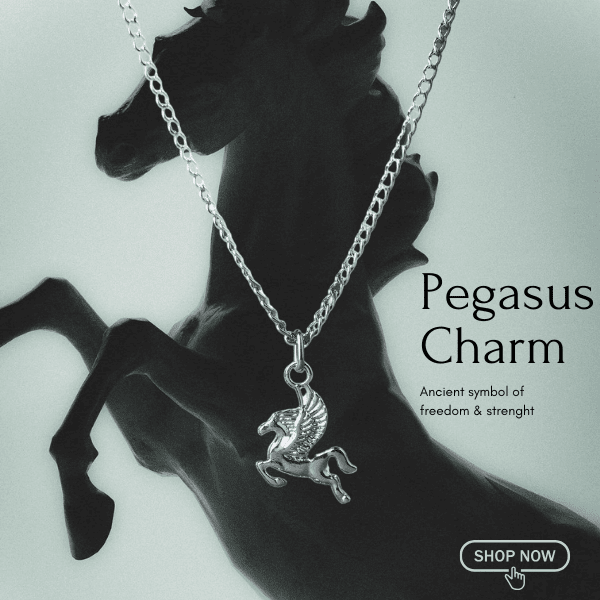Pegasus didn’t gallop out of Olympus.
He didn’t descend from the clouds, nor was he tamed by Zeus’s thunder.
No.
He was born from blood.
And not just any blood—but the severed neck of Medusa.
Let that sink in.
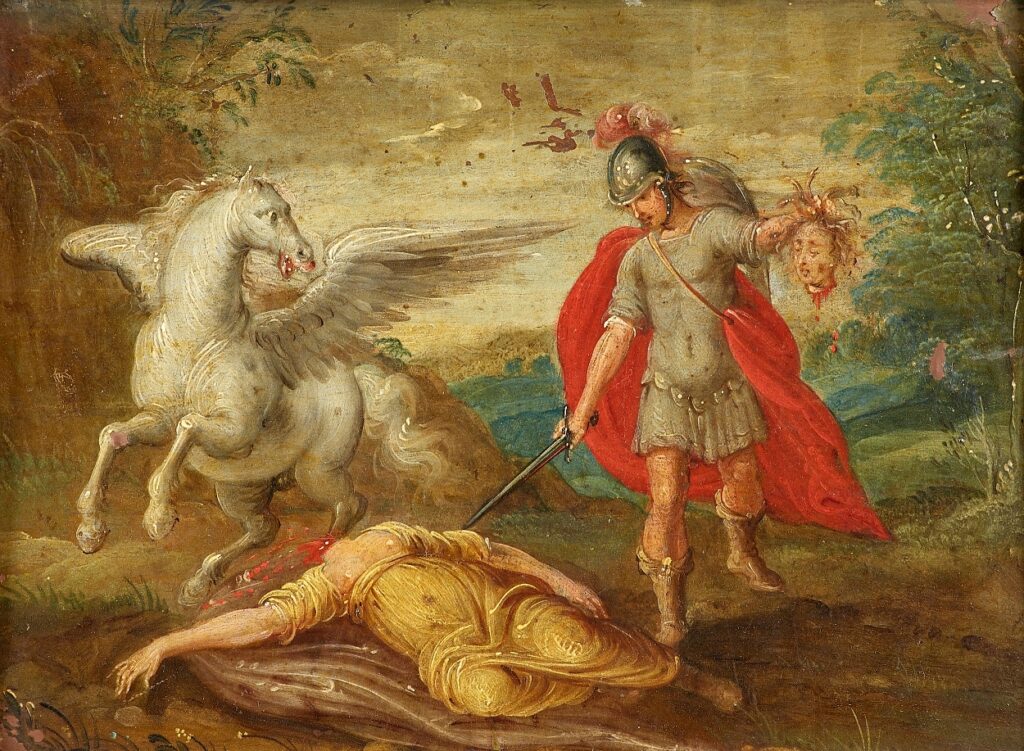
When Perseus beheaded Medusa, the monster the gods made her into, something miraculous happened. From her neck sprang not just one child—but two.
Pegasus, the winged horse.
And Chrysaor, the golden warrior.
Yes, you read that right: Medusa was a mother.
And one of her children could fly.
A Myth Born in Chaos
So what is the myth behind this magnificent creature?

Pegasus’s mythology origin is unlike any other divine creature. He wasn’t created in a lab of light and music. He was born in the middle of trauma—the product of a violent act, and the strange, divine alchemy that followed.
Medusa, once a priestess of Athena, was assaulted by Poseidon in the goddess’s temple. Athena cursed Medusa—not Poseidon. From that curse came snakes. From that pain came power. And from that death… came Pegasus.
So who are Pegasus’s parents? Poseidon and Medusa. A sea god and a serpent woman. Rage and tragedy. And Pegasus is the strange, pure thing that emerged.
A Symbol of Freedom from Violence
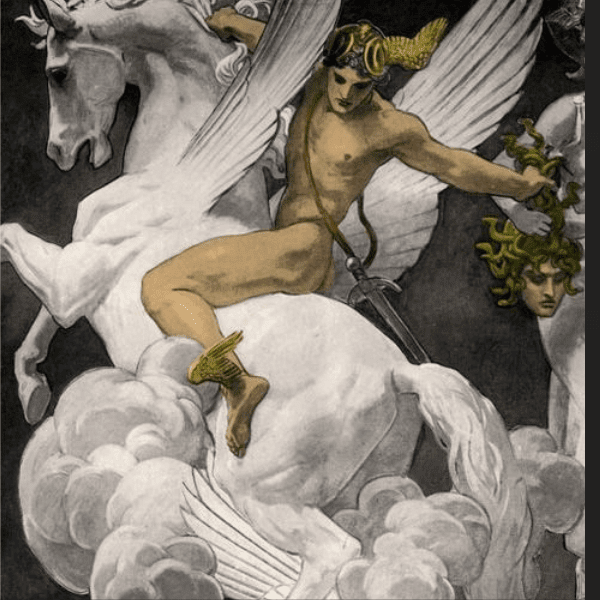
Because he doesn’t just symbolize flight. He symbolizes release.
He didn’t walk away from Medusa’s body. He flew.
He didn’t grow up in Olympus. He grew up from a moment no one expected to bring life.
And in that sense, Pegasus is more than a horse. He is rebirth. He is what remains after everything else is destroyed.
In mythology, Pegasus becomes a loyal companion to heroes—Bellerophon most famously. He carries warriors. He kicks open Mount Helicon and brings forth the spring of the Muses. He’s not just wings and speed—he’s a creative force, a symbol of inspiration.
To the ancient poets, Pegasus wasn’t just a creature. He was the breath behind every verse.
And to us? He’s a reminder that something divine can come out of the darkest places.
Pegasus in Symbolism & Psychology
What does a Pegasus symbolize?
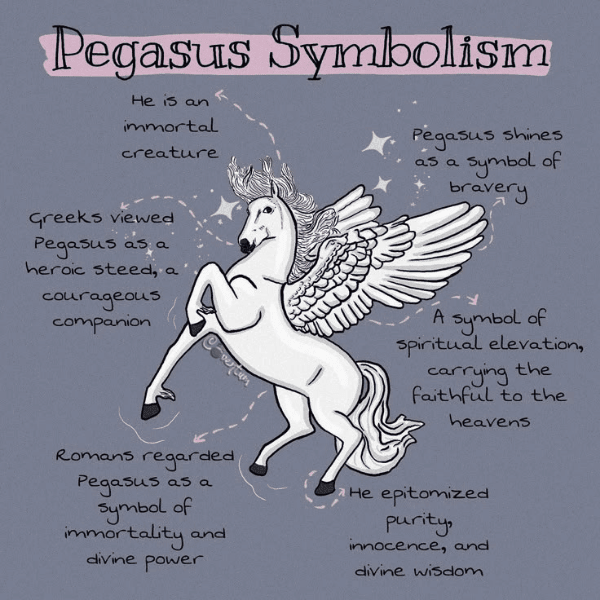
- Freedom—because nothing can hold him.
- Inspiration—because he is linked to the Muses and creativity.
- Transcendence—because he rises above pain, fear, and death.
- Duality—because he is born from both earthly horror and divine power.
Pegasus isn’t just light and air—he’s blood and wings.
And that’s why he’s powerful.
Psychologically, Pegasus represents the soul’s ability to escape trauma.
He is what survives.
He is what transforms.
He’s the part of us that still believes in beauty, even after the fall.
Pegasus as a Pendant: Wearing the Myth
Wearing a Pegasus pendant isn’t about loving horses.
It’s about carrying the story of a creature who was never supposed to exist, but did anyway.
A creature who took pain—and soared.
A symbol of healing, artistic spark, divine protection, and motion forward.
If Medusa teaches us how to confront what was done to us, Pegasus teaches us how to rise after it.
That’s why our Coventum Pegasus necklace is more than metal.
It’s a myth forged into something wearable. A reminder that even if you’ve been shattered—your story isn’t over.
A Winged Legacy
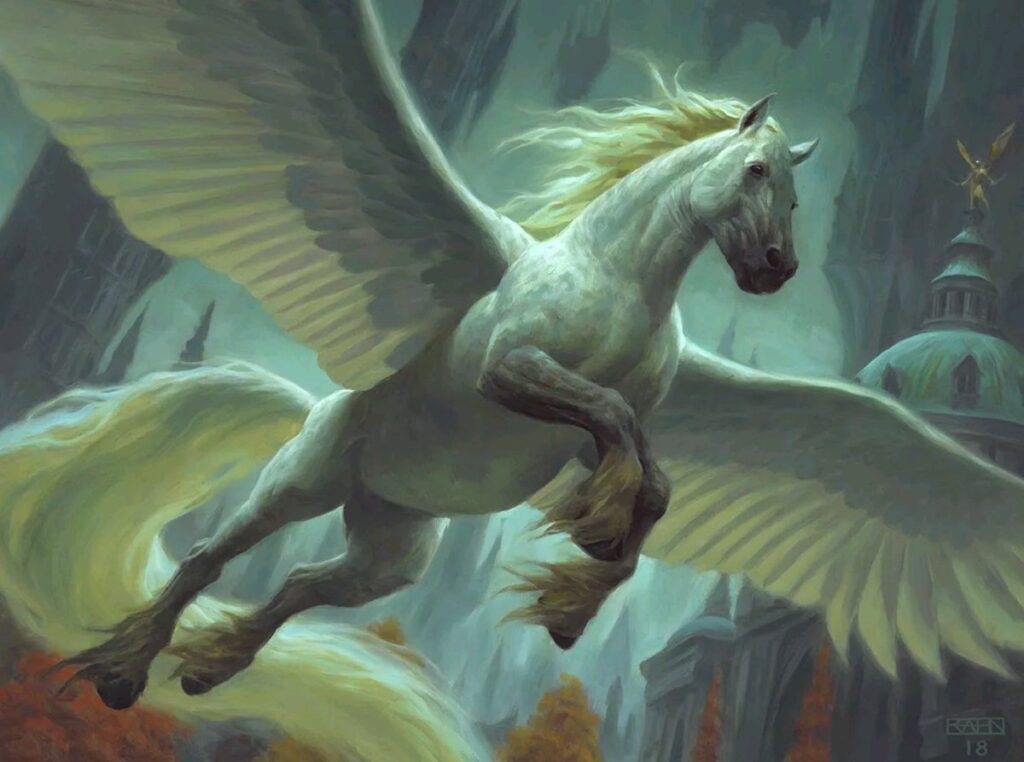
So… is Pegasus the son of Medusa? Yes.
And that makes him more powerful—not less.
He is born of a woman wronged, and he carries her strength, her pain, her skyward wish.
So next time someone asks you “Why does Medusa have Pegasus?”,
Tell them: Because something had to escape. And someone had to rise.

